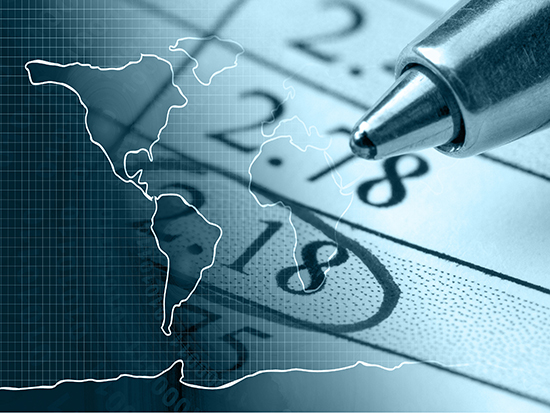The World Trade Organization Public Forum 2017 will host the launch of a project aimed at making new technologies work towards the expansion of global trade.
Called ‘ITTI – Intelligent Tech & Trade Initiative’, this new multimedia project will examine how cutting-edge technologies can bring about new functional and conceptual approaches, allowing for international trade transactions and negotiations to advance.
ITTI’s ultimate objective is to stir the debate involving the technology community, trade negotiators, business leaders and scholars on how to better pursue a constructive trade agenda. Mindful of both national and multilateral specificities, ITTI aims at countering deglobalisation forces now operating in international trade.
The project will be launched at the session “Building an Intelligent Tech & Trade Initiative – ITTI: Augmented Intelligence & the Future of Global Trade”. It will be held on September 27, 11:30 am – 1:00 pm, at WTO Headquarters in Geneva.
The session at the WTO is one of the first steps of a venture that gathers representatives from institutions and companies as different as ICC (International Chamber of Commerce), IBM, Gearbulk, UNCTAD and Columbia University in assessing how global trade can be positively impacted by the expanded use of blockchain and cognitive technology platforms.
ITTI was founded by business leader Daniel Feffer, President of ICC-Brasil and is managed by ICC under the direction of Marcos Troyjo, Co-Director of BRICLab at Columbia University | SIPA, where he teaches international affairs.
“Creating ITTI is an essential move that can drive trade beyond existing roadblocks, Feffer says. “I’m certain blockchain and AI will boost trade growth. These technologies can help both SMEs (small and medium-sized enterprises) and Emerging Markets seize a bigger piece of the global trade pie”, he adds.
“Deintermediation [sic], trust and agile market access are made possible by these new technologies. My vision is that very instrumental tools, such as bringing the Letter of Credit to a 21st Century blockchain-intensive marketplace, or modelling negotiation scenarios through AI, will enhance both transactions and trade agreements. But we’ve got to make sure they are inclusive of companies big and small, countries rich or emerging, so all can benefit from their extraordinary potential”, Feffer points out.
For Professor Troyjo, ITTI will show how negotiators can be better geared up to face trade challenges if aided by AI tools.
“New technologies out there can help delegations gather and structure information as well as predict different negotiation outcomes. This is a major move forward in levelling the playing field when it comes to trade talks”, argues Troyjo.
For IBM, ITTI is a great opportunity to help to transform the way international negotiations work for decades. “The potential of technological adoption is enormous and with this organisation we´ll have agility, transparency, security and less bureaucracy at all stages of the process. Countries, citizens, small, medium and large companies win”, says Fabio Rua, IBM Latin America Government and Regulatory Affairs Director.
Some of ITTI´s core activities will include the publication of research papers, establishing an internet-based platform, organising conferences and the production of TV and YouTube documentaries and interviews series on the future of technology and trade.
ITTI’s session during the WTO Public Forum 2017 will feature as speakers Ambassador John Danilovich (Secretary-General of ICC), Ambassador Álvaro Cedeño, (Permanent Representative of Costa Rica to the WTO), Ambassador Rufus Yerxa (President of the National Foreign Trade Council), Stewart Jeacocke (Leader of IBM’s Global Government Centre of Competence), Marion Jansen (Chief-Economist of the International Trade Center), Jan Hoffmann (Director for Trade Facilitation of UNCTAD), Theresa Carpenter (Executive Director of the Center for Trade and Economic Integration, The Graduate Institute, Geneva), Daniel Feffer (President of ICC-Brasil) and Professor Marcos Troyjo (Co-Director of BRICLab, SIPA, Columbia University).


